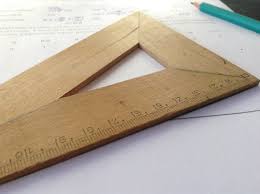According to Oxford Dictionary an engineer is, “A person who designs, builds, or maintains engines, machines, or structures.” In today's world the field of engineering encompasses so much more. Engineers are problem solvers, designers, organizers and calculators. The modern engineer is also computer savvy. They will utilize software programs to assist in design and forecasting or developing new software to make things run better. Engineering touches every aspect of life. For example, phones, bridges, appliances, machines, buildings, computers, airplanes, and the list goes on.
An engineer uses science, math and ingenuity to develop solutions to commercial, technical and societal problems. They design structures, materials, systems and processes, while taking into account regulations, safety, cost and practical limitations. Being an engineer is challenging and rewarding. An engineer can be involved in finding answers to problems that confront society.
There are 4 main disciplines that the engineering field is broken down into. They are Mechanical, Chemical, Electrical and Civil Engineering. There are numerous sub disciplines under each of those. Computer Engineering, Construction Engineering, Aerospace Engineering and Biomedical Engineering are just a few of those sub disciplines.
Getting an engineering degree can open the door to other professions as well. The thinking process and skills developed as an engineer are very valuable and highly sought after. There are many engineering graduates who are currently in careers in business, law and medicine. In addition, there are a significant number of CEO's and people in other key management positions in large companies who come from engineering backgrounds. There will always be a demand for the skills of an engineer.
Overall, engineers are designers, calculators, designers, planners, tech savvy and problem solvers. If you are curious about how things work and like to apply what you learn to solve real world problems, engineering may be the right field for you.

 example, many schools have mechanical engineering programs, but only a few have civil engineering programs. After the major is determined, then other criteria needs to be factored in. These include, large or small school, preferred geographic location and of course the student's grades and test scores. Taking all of these factors into account will help to narrow down which colleges to start looking at. In short, all schools are not a perfect fit for all students, but considering your student's needs is the start to find the correct engineering college for them.
example, many schools have mechanical engineering programs, but only a few have civil engineering programs. After the major is determined, then other criteria needs to be factored in. These include, large or small school, preferred geographic location and of course the student's grades and test scores. Taking all of these factors into account will help to narrow down which colleges to start looking at. In short, all schools are not a perfect fit for all students, but considering your student's needs is the start to find the correct engineering college for them.